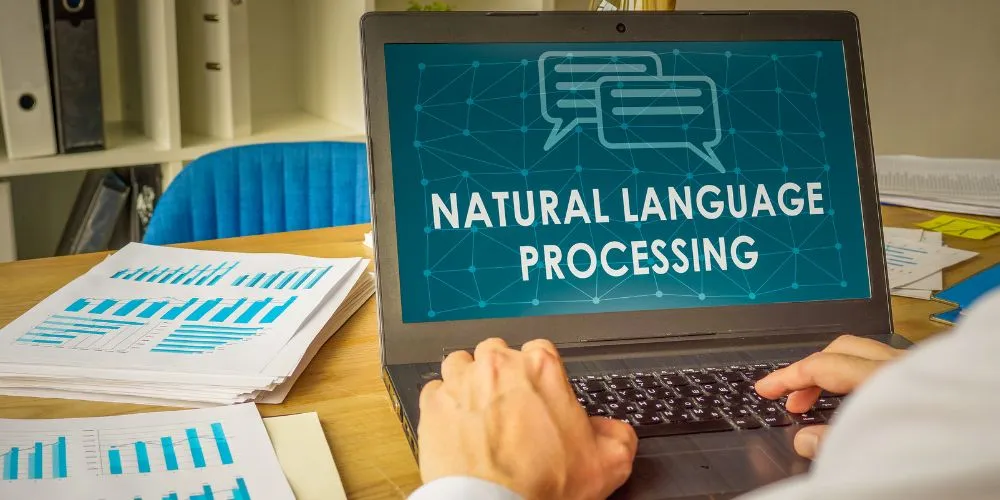Natural Language Processing (NLP) is at the forefront of cutting-edge technology, empowering machines to comprehend, interpret, and generate human language. This article conducts a comprehensive analysis of the current state of the NLP market, exploring key trends, market dynamics, and challenges, and offering insights into the future outlook of this transformative sector.
Market Overview
The Natural Language Processing market represents a revolutionary stride in artificial intelligence, enabling machines to understand and interact with human language in a manner that mimics human cognition. It encompasses various applications, from virtual assistants and chatbots to language translation services and sentiment analysis. As the demand for intelligent language-based solutions grows, the Natural Language Processing market is witnessing a surge in innovation and adoption across various industries.
The approximate decision of the Techgolly market research team is that the global Natural Language Processing market was valued at least USD 35 billion in 2023 and continues to be projected to reach USD 219 billion by 2030. Growth will continue at a compound annual growth rate (CAGR) of 28% to 30% from 2023 to 2030.
Key Market Trends
Several notable trends mark the Natural Language Processing market:
Advancements in Conversational AI
Conversational AI, powered by NLP algorithms, is experiencing significant advancements. Virtual assistants and chatbots are becoming more sophisticated, providing users with a natural and interactive means of engaging with technology. This trend reshapes customer service, user interfaces, and how individuals interact with digital platforms.
Multilingual NLP Solutions
The development of multilingual Natural Language Processing solutions is gaining prominence. As businesses and platforms cater to global audiences, there is a growing need for Natural Language Processing models to understand and process multiple languages. This trend is instrumental in breaking down language barriers and facilitating seamless communication across diverse linguistic landscapes.
Integration of NLP in Business Intelligence
Natural Language Processing is increasingly integrated into business intelligence tools, enabling organizations to extract valuable insights from unstructured textual data. The ability to analyze and derive meaning from vast amounts of textual information enhances decision-making processes, trend analysis, and competitive intelligence.
Rise of Emotion Recognition in NLP
Emotion recognition through Natural Language Processing is emerging as a powerful trend. NLP algorithms can now analyze text to discern emotional tones and sentiments. This capability finds applications in customer feedback analysis, social media monitoring, and understanding user emotions for enhanced user experiences.
Challenges
Despite the positive trends, the Natural Language Processing market faces certain challenges:
Ambiguity and Context Understanding
Natural Language Processing systems often struggle with human language’s inherent ambiguity and complexity. Understanding context, sarcasm, and nuances poses challenges, especially in applications where accurate interpretation is critical, such as legal or medical contexts.
Bias in NLP Algorithms
Bias in NLP algorithms is a significant concern. If the training data used to develop NLP models contains biases, the algorithms can perpetuate and amplify those biases. Addressing bias in NLP is an ongoing challenge that requires careful curation of training datasets and continuous algorithmic refinement.
Privacy and Ethical Considerations
As NLP systems handle vast amounts of personal and sensitive data, privacy and ethical considerations become paramount. Ensuring responsible data handling, transparent algorithms, and adherence to privacy regulations are critical challenges for NLP developers and stakeholders.
Future Outlook
The NLP market holds several key developments for the future:
Integration with Edge Computing
The integration of NLP with edge computing is expected to become more prevalent. Processing language locally on devices at the network’s edge can reduce latency, enhance real-time interactions, and contribute to the efficiency of NLP applications.
Enhanced Multimodal NLP
The future of NLP involves integrating multiple modalities, such as text, speech, and visual inputs. Enhanced multimodal NLP will enable a more comprehensive understanding and interaction with content, paving the way for more immersive and context-aware applications.
Continued Growth in Healthcare Applications
The healthcare sector is poised for increased integration of NLP applications. From clinical documentation and voice-assisted diagnostics to patient communication, NLP is expected to be crucial in streamlining processes and improving overall healthcare outcomes.
Conclusion
Natural Language Processing has evolved from a theoretical concept to a practical and transformative technology with wide-ranging applications. As the NLP market matures, addressing challenges related to language nuances, bias, and ethical considerations will be pivotal. The future outlook is optimistic, with NLP becoming integral to everyday interactions, business operations, and technological advancements. The evolution of NLP reflects technological progress and its profound impact on how we communicate, work, and interact in an increasingly digitized world.





